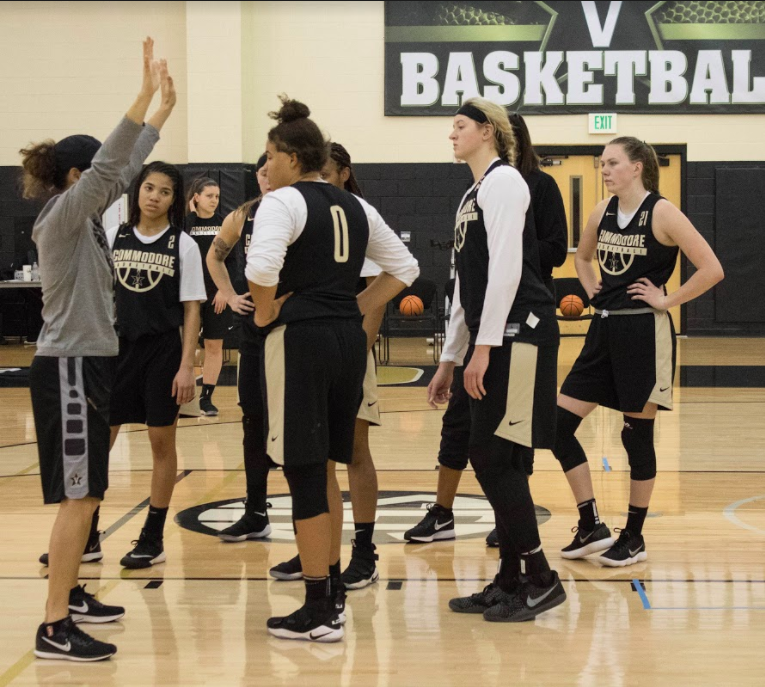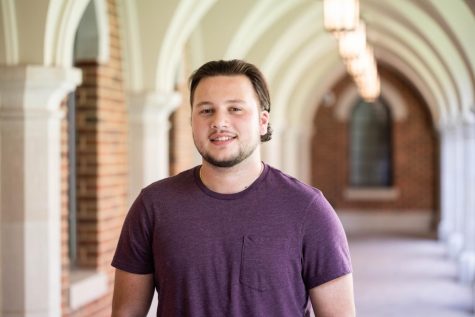The Vanderbilt women’s basketball team will take the floor on Friday to open up their season against Middle Tennessee State, but not without a bit of controversy. Prior to the team’s final scrimmage against Marion University on October 29th, six players took a knee during the National anthem, joining many athletes across sports in protesting police brutality against African Americans. The Vanderbilt Hustler caught up with Coach Stephanie White to talk about her team’s protest before the upcoming season.
Vanderbilt Hustler: Is the National anthem protest something you guys have talked about as a team?
Stephanie White: Yeah, we’ve been discussing it for a long time. One of the things we take great pride in as a staff is really having difficult conversations about real-world issues that affect our team and affect our communities. Because it’s about more than basketball, and we want opportunities to help mold and empower future leaders, and we don’t do that by pretending that issues don’t exist.
VH: How is the protest unique to Vanderbilt?
SW: I think that’s one of the great things about Vanderbilt. That’s one of the reasons Vanderbilt is so appealing. We have difficult conversations. Because we’re not helping mold and empower future followers, we’re helping mold and empower future leaders. So, I think it’s extremely unique to Vanderbilt and where we are.
VH: Have you received any backlash regarding the protest?
SW: Well, there’s been people talking about it negatively, no doubt about it. I think each one of our players you’ll probably have to ask them individually. But at the same time, it’s about having difficult conversations. No matter what action you take across the board, there’s always going to be people who agree and people who disagree. I think the biggest thing is that athletics has always been on the forefront of social change, and we take great pride in being able to have these difficult conversations. Just like any team, you’ve got to be able to have difficult conversations and respect one another’s opinions, whether you agree or disagree. That’s what being part of a team is about, that’s what healthy relationships are about and that’s what we want our players to have: healthy relationships.
VH: Is this something we should expect so see more of going forward?
SW: Yeah, I mean, I think it’s conversations that we have pretty much on a daily basis. Our team feels very strong about the opportunities to affect change. We will be supportive of it.
VH: What do you think are some solutions to the problems the team is protesting?
SW: Well, I’d have a lot different job if I had the ability to fix it. But, I do think the ability to have conversation is really important. I think the ability to have empathy for what’s going on, and the ability to not ignore the fact that something’s happening. I think conversation is a big, big change agent. I also think that one thing that our players are doing that I’m really proud of them for, and I am so proud of young people nowadays, because young people stand up for what they believe in a way that a lot of us middle-aged folks don’t. They’re fearless, they’re informed, and they believe in themselves. I’m really proud of them for that, but I also think that having information, communicating information, and then being respectful of one anothers thoughts and viewpoints, are key to making a change. And each one of our players wants to be a change agent, and I’m proud of them for that.
VH: Do you think this is something that has unified the team?
SW: I think so. Having difficult conversations makes you closer. I think we see that in our everyday relationships. If you can get on the other side of a difficult conversation, you get tighter. You get closer. I also think it’s given each one of us in the room, not just our players, different perspectives. And that’s important, to have different perspectives. I think it’s been really good for our team.



